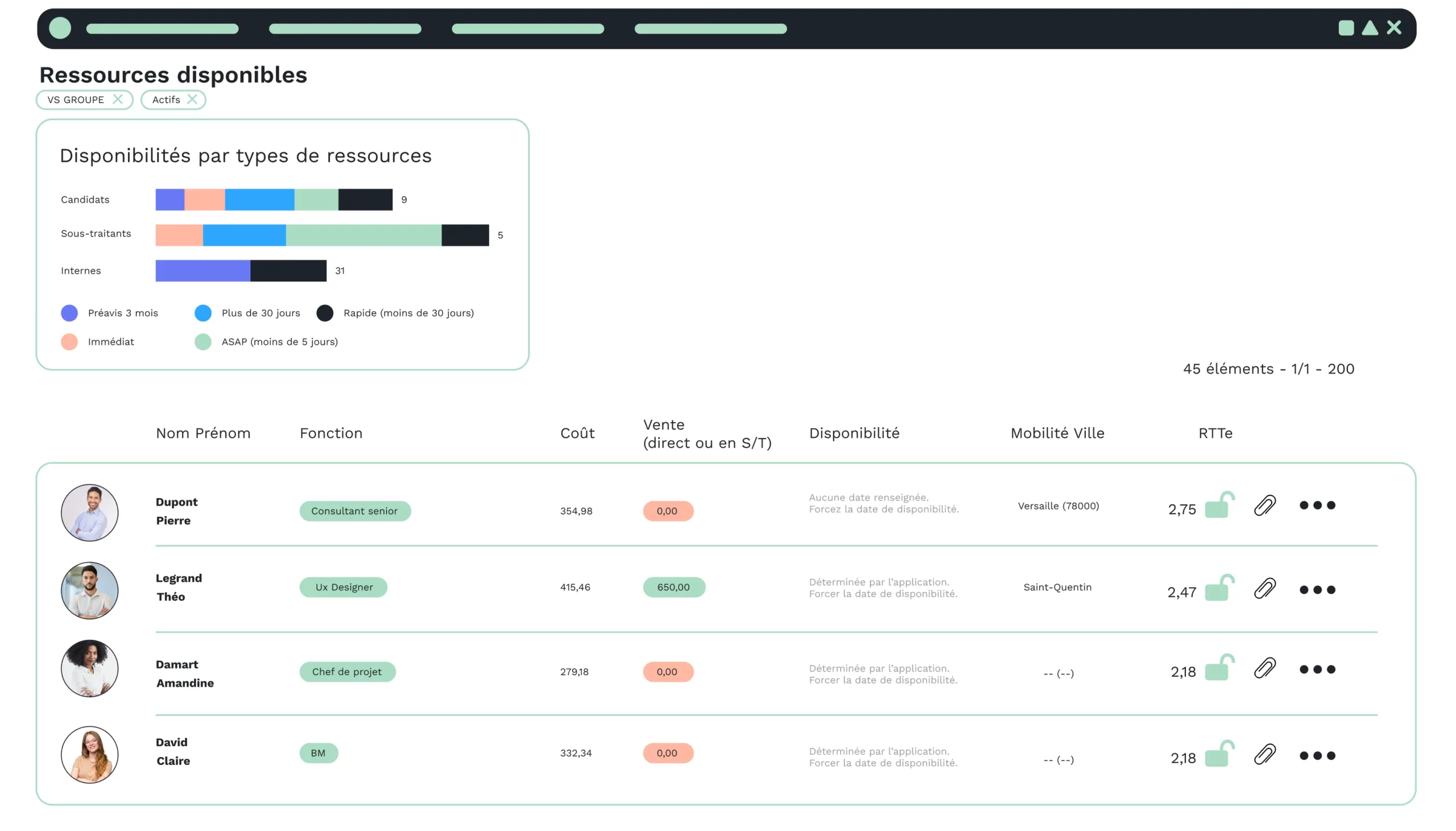Many companies have already resorted to short-time working under the government’s COVID-19 scheme. The aim of this company support scheme is to limit redundancies and retain the company’s skills so that it can cope when business picks up again.
Short-time working enables companies to reduce or even interrupt employee activity, but the new decree raises a number of administrative questions. Here are the answers to the 6 questions you may have about this device.
What is short-time working?
Also known as “technical unemployment” or “partial activity”, this is a system that enables companies to reduce or interrupt employee activity.
Article R5122-1 of the French Labor Code provides a framework for this system, setting out the valid reasons why a company may resort to short-time working:
- Economic conditions
- Difficulties in sourcing raw materials or energy
- Exceptional damage or bad weather
- Company transformation, restructuring or modernization
- Any other exceptional circumstances
How does short-time working work?
The request for short-time working must be made by the employer, and must comply with the grounds laid down in the French Labor Code.
To set up partial activity, employers must apply online via the following portal: https: //activitepartielle.emploi.gouv.fr.
You have 30 days in which to make the request from the moment you put your employees on short-time working. This request can be granted for a period equivalent to 12 months.
In other words, if you apply on April 20, 2020, authorization may be granted until April 20, 2021.
When partial activity is in place, the employer receives an allowance from the Agence de services et de paiement (ASP) representing 70% of the employee’s gross remuneration (around 84% of his net salary).
This allowance is limited to a salary of 4.5 SMIC and a minimum of €8.03 per hour.
To illustrate this, here are 3 examples given by the government:
Example 1:
An employee earns 10.15 euros gross per hour (1 SMIC gross) for a 42-hour week. His company’s activity was completely interrupted for three weeks.
70% of 10.15 is equal to 7.1 euros, which would be the amount of the partial activity allowance. However, this amount is below the floor of 8.03 euros.
As the decree sets the minimum allowance at 8.03 euros, the hourly allowance paid to the employer will be 8.03 euros.
Partial activity takes into account the number of hours not worked, up to a maximum of 35 hours per week. 7 hours a week (42-35=7) will therefore not count towards the allowance if the employee is completely unemployed.
The employer will receive an allowance of : 8.03 x 35 x 3 = 843.15 euros.
The employer must pay the employee an equivalent indemnity. It will not be subject to social security contributions. There will be no out-of-pocket expenses.
Example 2:
An employee earns 30.45 euros gross per hour (3 SMIC gross) for a 20-hour weekly contract. His company’s activity was completely interrupted for a week.
70% of 30.45 is equal to 21.31 euros.
Partial activity takes into account the number of hours not worked, up to a limit of 35 hours per week or the contractual number of hours. 20 hours will therefore be counted towards the allowance.
The employer will receive an allowance of : 21.31 x 20 = 426.2 euros.
The employer must pay the employee an equivalent indemnity, subject to CSG and CRDS (6.7%). There will be no out-of-pocket expenses.
Example 3:
An employee earns 50.75 euros gross per hour (5 SMIC gross) for a 35-hour week. His company’s activity was completely interrupted for two weeks.
70% of 50.75 is equal to 35.52 euros.
The result is over 31.98 euros (representing 70% of 4.5 smic/hour gross).
Partial activity takes into account the number of hours not worked, up to a limit of 35 hours per week or the contractual number of hours. 70 hours will therefore be counted towards the allowance.
The employer will receive an allowance of : 31.98 x 35 x 2 = 2238.6 euros.
The employer must pay the employee compensation of : 35.52 x 35 x 2 = 2,486.4 euros.
This allowance will be subject to CSG and CRDS (6.7%).
The employer will have to pay: 2486.4 – 2238.6 = 247.8 euros.
Who can benefit from short-time working?
All the company’s employees may be affected by partial activity, regardless of their type of contract, seniority or working hours.
The employer must request it, and does not need the employee’s agreement.
-
Short-time working and fixed working days?
Forfait jours employees benefit from short-time working under the same conditions as other employees. This means compensation of 70% of the gross hourly wage, which cannot be less than €8.03 per hour.
-
Short-time working and apprentices?
As apprentices are paid less than the minimum wage, they receive their full salary in the form of compensation.
The same conditions apply to professionalization contracts with a salary equal to or higher than the SMIC (minimum wage) as for salaried employees.
-
Short-time working and temporary workers?
Temporary workers have the same rights as employees on short-time working if the company they are working for has also put its employees on short-time working.
-
Short-time working and fixed-term contracts?
Fixed-term contracts for increased activity are not included in the short-time working scheme. However, for the others, they will benefit from the same rights for the duration of their contract.
What is the social security system applicable to partial activity benefits?
Partial activity allowances are subject to CSG and CRDS. For non-residents of France for tax purposes, short-time working is subject to a 2.80% health contribution.
Employees affiliated to the compulsory supplementary health insurance schemes of Haut-Rhin, Bas-Rhin and Moselle are liable for the 1.50% health contribution.
How can I implement short-time working in my internal process?
Now that you’ve taken the necessary steps with the government, you need to integrate the short-time working process into your internal procedures.
Here are the steps to follow:
-
Communicating with employees
Once you have identified the employees in your company who will be affected by short-time working, you must notify them by means of a company communiqué.
On the one hand, this will enable you to keep your employees informed about the company’s situation, and reassure them about the decisions you are taking.
-
Short-time working conditions
Depending on your company’s situation, you have the choice of implementing partial activity or temporarily suspending business activity.
In any case, you must inform your employees of the conditions of short-time working (duration, salary, etc.).
-
Administrative procedures
Don’t forget, you have 30 days from the date you announce the short-time working scheme to your employees to submit your application online.
Internally, HR will be hard-pressed to manage all these new measures, particularly in terms of administration.
Having a good tool to support them in HR management is an asset, especially during this period.
Which application should you use to manage short-time working in your company?
VSA: The application to support your HR management
Excel files, non-interoperable software or the multiplication of software packages have their limits in your human resources management.
VSA lets you automate your processes by adapting them to unforeseen circumstances, as is the case today with the COVID-19. With the application, you can allocate time for managing short-time working, apply exemption from charges or manage government reimbursements.
The application is not limited to management of the COVID-19 crisis, and covers a wide range of HR functions (payroll preparation, teleworking requests, etc.).
On VSA, data is centralized, enabling correlations to be made between different data. Its SaaS mode provides secure access for all employees, enabling them to work remotely.
Read also







